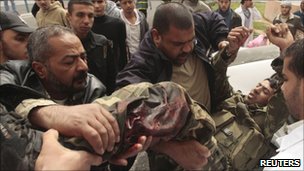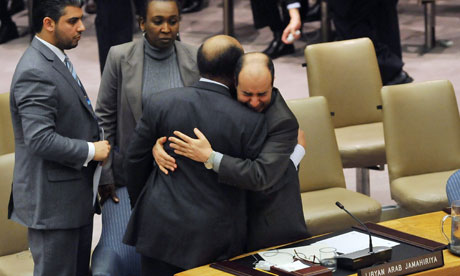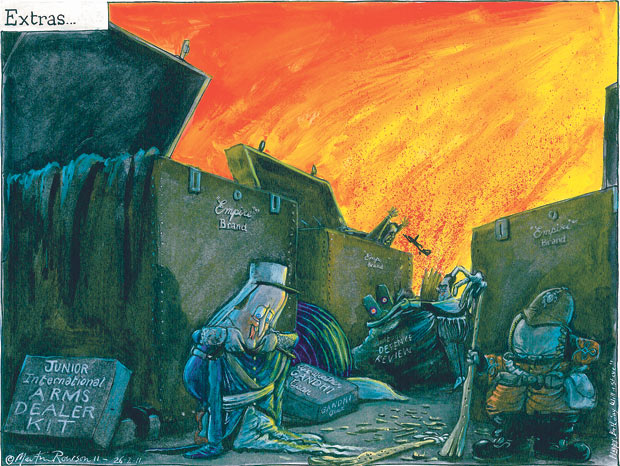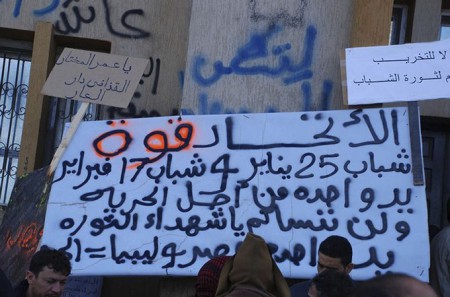Gaza militants fire dozens of mortars into Israel: BBC
Hamas security personnel were among those wounded by Israeli shelling

Palestinian militants in Gaza have fired dozens of missiles into southern Israel in what appears to be their heaviest such barrage in two years.
About 50 mortars were fired – two Israelis were hurt, Israel says.
Israeli tanks later shelled targets in the coastal strip, wounding at least five people, Palestinian officials say.
The Islamist group Hamas, which runs Gaza, said it fired some of the mortars. Three days ago an Israeli air strike killed two of its members.
The BBC’s Jon Donnison in Gaza says this seems to be an escalation – both in terms of the number of rockets fired from Gaza and the fact that Hamas said it was responsible.
Hamas’s military wing said it launched dozens of rockets, our correspondent reports.
Hamas and Israel have largely halted hostilities since the end of the Gaza war in January 2009, but skirmishes often break out around the border area.
Although members of Hamas’s military wing rarely carry out attacks, the Israeli military says it holds the group responsible for all militant activity in the Gaza Strip.
Israel lodges formal complaint with UN over barrage of Gaza mortars: Haaretz
In message to UN, Lieberman warns against supporting a future Palestinian ‘terrorist state who’s first and foremost goal is the destruction of Israel.’
Foreign Minister Avigdor Lieberman instructed Israel’s United Nations envoy to lodge a formal complaint with the organization after Israel was hit by over 50 mortars fired from Gaza on Saturday morning.
Two people were lightly wounded and a home was damaged by the mortars. Hamas has claimed responsibility for 10 of the mortars.
Lieberman, in a message to the UN, warned that a future Palestinian state would be a “terrorist state who’s first and foremost goal is the destruction of Israel.”
The offensive from Gaza took place while “Hamas and the Palestinian Authority were talking about reunification,” Lieberman’s message said.
In the past week, there have been rallies in Hamas-ruled Gaza and Fatah-ruled West Bank calling for Palestinian reunification. Palestinian Authority President Mahmoud Abbas announced two days ago that he intends to go to Gaza to end the more than three years of internal division between his Fatah party and Hamas.
Liberman wrote that the talk of reunification during the barrage of rockets shows that “the international support that the Palestinians are trying to garner would be support for the creation of a terrorist state.”
The Palestinians have been pressing leaders worldwide to recognize an independent Palestinian state, an issue they plan on bringing to a vote at September’s United Nations General Assembly.
Other Israeli officials also responded harshly to Saturday’s bombardment, with Kadima head Tzipi Livni saying that “the right way to contend with Hamas is with force.”
Likud MK Danny Danon said it was up to Prime Minister Benjamin Netanyahu to respond harshly to the morning’s offensive.
IDF kills two Palestinian terrorists near Gaza border: Haaretz
IDF spokesman says soldiers identified terrorists and launched strike; Israel strikes Gaza after 50 mortars fired at Israel earlier Saturday.
IDF forces killed two Palestinian terrorists near the Gaza border on Saturday.
The IDF spokesperson said the terrorists were identified as nearing Israel’s border with Gaza so IDF armored forces launched a strike at the two Gazans, killing them both.
The attack comes after more than 50 mortars were fired from Gaza into southern Israel earlier Saturday, wounding two Israelis. Hamas claimed responsibility for 10 of the more than 50 mortars fired.
In response, IDF forces struck Hamas targets in the Gaza Strip, wounding five Hamas security officers and a boy, Gaza medics reported.
Syria mourners call for revolt after deaths: The Independent
By Suleiman al-Khalidi, Reuters
Saturday, 19 March 2011
Thousands of mourners called on Saturday for “revolution” at the funeral of protesters killed by Syrian security forces, the boldest challenge to Syria’s rulers since uprisings began sweeping the Arab world.
Security forces responded by firing tear gas to disperse crowds in Deraa, a tribal region south of the capital where at least 10,000 people demonstrated on Saturday at the funeral of two protesters, among at least four who were killed on Friday.
“Revolution, revolution. Rise up Hauran,” chanted the mourners in Deraa, administrative capital of the strategic Hauran plateau, as they marched behind simple wood coffins of Wissam Ayyash and Mahmoud al-Jawabra.
“God, Syria, Freedom. Whoever kills his own people is a traitor,” they said. Some of the mourners exited a mosque and headed for the centre to protest.
The city was less tense by late afternoon after security forces dispersed most of the crowd and adopted less aggressive tactics than the previous day, residents said.
The two were killed when security forces opened fire on Friday on civilians taking part in a peaceful protest demanding political freedoms and an end to corruption in Syria, which has been ruled under emergency laws by President Bashar al-Assad’s Baath Party for nearly half a century.
A third man who was killed on Friday, Ayhem al-Hariri, was buried in a village near Deraa earlier on Saturday. A fourth protester, Adnan Akrad, died on Saturday from his wounds.
Secret police at the main funeral in Deraa arrested at least one mourner, activists said. Security was heavy in the city, especially around police stations.
The city of Deraa is home to thousands of displaced people from eastern Syria, where up to 1 million people have left their homes because of a water crisis over the past six years. Experts say state mismanagement of resources has worsened the crisis.
The Hauran region, once a Middle East bread basket, has also been affected by diminishing water levels, with yields per hectare falling by a quarter in Deraa last year.
Protests against Syria’s ruling elite, inspired by revolts in the Arab world, have gathered momentum this week after a silent protest in Damascus by 150 people demanding the release of thousands of political prisoners.
At least one activist from Deraa, Diana al-Jawabra, took part in the protest. She was arrested faces charges of weakening national morale, along with 32 jailed protesters, a lawyer said.
Jawabra, who is from a prominent tribe, was campaigning for the release of 15 schoolchildren arrested in Deraa this month after writing slogans on walls, inspired by revolutions in Egypt and Tunisia that swept their autocratic leaders from power.
Residents say the children’s arrests deepened feelings of repression and helped fuel the protests in Deraa, the biggest threat yet to the authority of Assad.
Assad said in a January interview Syria’s leadership was “very closely linked to the beliefs of the people” and there was no mass discontent.
“The leadership have given a clear signal that they are not in any hurry to embark on fundamental political reform,” said a diplomat in the Syrian capital.
In a move seen as an attempt to address the discontent, Assad issued a decree on Saturday lessening mandatory army conscription from 21 months to 18 months.
The long conscription period has generated discontent, especially among the youth who resent state tactics to bring them into service, such as random ID checking, and the withholding of food aid from families whose members escaped conscription.
Yemen opposition activists clash with police: Al Jazeera English
Security forces open fire in southern city of Aden, a day after emergency was declared following a bloody crackdown.
Last Modified: 19 Mar 2011
Yemen seethed with anger on Saturday as medics raised the death toll from a sniper attack on protesters to 52 [AFP]
Police have stormed a protest camp in southern Yemen where thousands are calling for the ouster of Ali Abdullah Saleh, the country’s longtime president.
Saturday’s raid was the latest attempt by security forces to quell growing unrest.
Protesters say police fired tear gas and live rounds in the southern port city of Aden, wounding three anti-government protesters.
Meanwhile, two prominent members of Yemen’s ruling party resigned on Saturday in protest against the killing of the anti-government protesters a day before.
“I find myself compelled to submit my resignation … after the heinous massacre in Sanaa yesterday,” Nasr Taha Mustafa, head of the state news agency and a leading ruling party member, said.
While, Mohamed Saleh Qara’a, another party member, told Reuters he had quit because of the “completely unacceptable” violence.
Saleh declared on Friday a nationwide state of emergency after a violent crackdown on anti-government protests left at least 52 people dead and scores more wounded in the capital, Sanaa.
He said that the decision to impose the state of emergency was made by the country’s National Security Council, but there was no immediate indication of how long it would last.
“The National Security Council announces a state of emergency across Yemen, and a curfew is set upon
armed people in all Yemeni provinces. And the security forces with the army will take responsibility for
stability,” he said.
He also expressed “sorrow for what happened in the university square” on Friday.
Sources told Al Jazeera the security forces opened fire in attempts to prevent protesters from marching out of the square where they were gathered. Medical sources said the death toll was likely to rise.
The attack came as thousands gathered across the country, continuing to demand that Saleh – the country’s ruler of 32 years – step down.
Al Jazeera correspondents in Sanaa reported that many protesters were shot in the head and neck; most of the injured were shot with live ammunition.
Medics at a nearby medical centre told Al Jazeera almost 200 people were injured; many were in critical condition. One medic called the attack a “massacre”.
Anti-government demonstrations were also held in other cities including Taiz, Ibb, Hodeidah, Aden, and Amran following Muslim midday prayers on Friday.
Government forces have previously used live fire, rubber bullets, and tear gas on anti-regime rallies, in the government’s increasingly violent crackdown on protests.
Yemen, the Arabian peninsula state neighbouring Saudi Arabia, has been hit by weeks of protests set in motion by uprisings in North Africa that toppled long-serving leaders in Tunisia and Egypt and spread to the Gulf states of Bahrain, Oman and Saudi Arabia.
Saleh has maintained a firm grip on power for over three decades and has scoffed at calls to step down, saying he will only do so when his current term of office expires in 2013.
Despite violence and threats, anti-government protesters refuse to cease demonstrating until Saleh’s removal.




